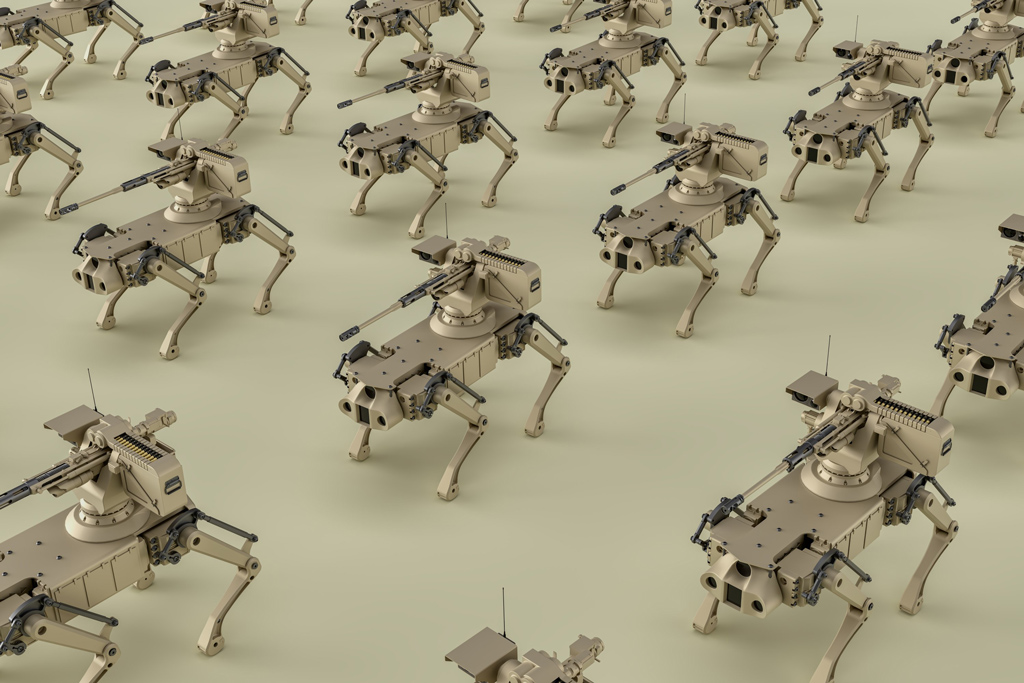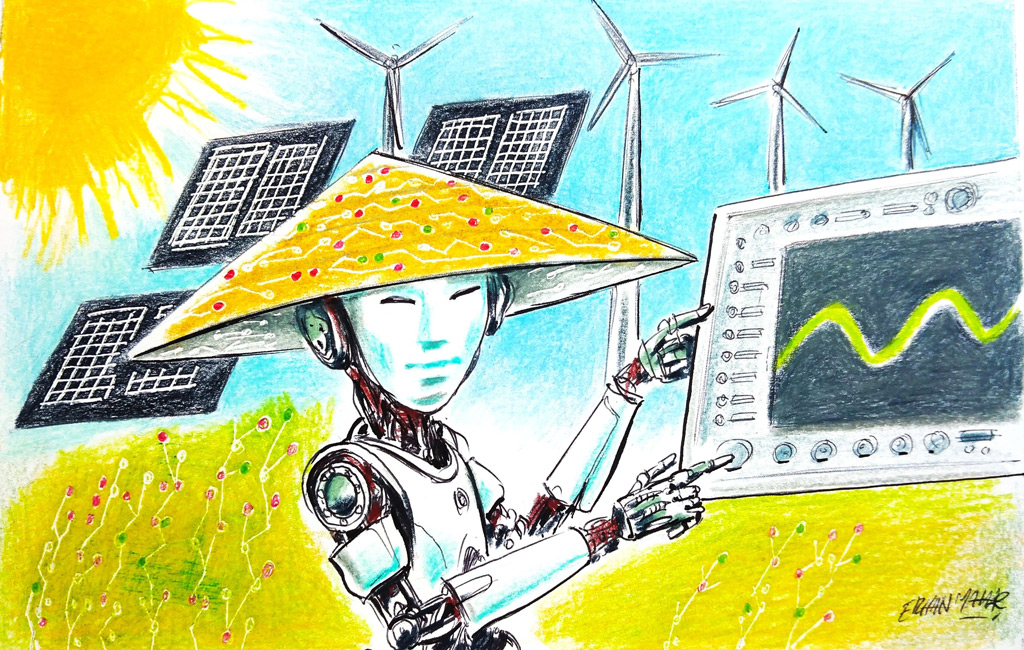For some time now, we have witnessed the transformative effects of the Fourth Industrial Revolution, driven by technologies such as artificial intelligence. Unlike previous industrial revolutions and their respective technologies, this ongoing revolution is reshaping every aspect of our lives. The primary reason for this profound impact is that AI, often referred to as a force multiplier due to its dual-use capabilities, can be integrated into virtually every domain, enhancing and automating processes. AI's deep and wide influence explains its widespread adoption and the significant changes we are experiencing.
The extensive and profound application of AI has introduced a novel concept known as the “personalization of technology.” In essence, AI's versatility allows it to be customized and integrated into various domains for different purposes, ranging from military applications to everyday life. This personalization means that AI can be tailored to meet specific needs and preferences, making it a unique and pervasive force in our daily experiences and specialized fields alike.
Apple’s new 'personal assistant'
An example of the personalization of technology is Apple's recent announcement of its new system, "Apple Intelligence." At its core, Apple Intelligence is built on the concept of personal intelligence, aiming to transform our devices from mere communication tools into personal assistants. Through its collaboration with OpenAI, Apple devices will now be able to tailor their services to individual user needs.
For instance, Siri will organize schedules, create videos from simple prompts, generate new emojis (now called "genmojis") featuring faces of friends and family, and even customize email tones based on the email's purpose. A particularly striking feature of this new system is its ability to remember and recognize all information stored on our devices. It can identify family members, recall activities from the previous week with friends and keep track of upcoming plans, functioning like a personal assistant that we carry everywhere.
These advancements are made possible by the continuous development of AI, particularly in natural language processing, and the deeper integration of AI into Apple devices. This evolution not only enhances functionality but also makes technology more user-friendly and intuitive.
Personalization of technology in the military domain
However, Apple’s new system is not the only instance of the personalization of technology. One significant area where this trend is developing is the military domain. This sector merits particular attention due to its profound impact on other fields and international relations. The personalization of technology in the military context implies that each state will focus on distinct applications and adaptations of AI within its military domain, primarily shaped by the specific threats it faces and its national interests. Consequently, while one state may prioritize integrating AI for counterterrorism strategies, others may employ it to enhance their military status quo.
To elaborate, China, which is engaged in a great power rivalry with the United States, aims to increase its military power to achieve the goal of national rejuvenation and become a world-class military power by 2049, the centenary of the founding of the People's Republic of China. To reach this goal, China has announced plans to complete the modernization of its military by leveraging emerging technologies, especially AI.
When considering the military domains where China has been most active in adopting AI, the naval domain dominates. This focus is geopolitically strategic, given that Taiwan remains a contentious issue for China, and competition with the United States is a primary driver of its foreign policy.
Specifically, China has heavily invested in unmanned underwater vehicles. Innovations such as "robosharks," robofish and advanced AI-driven submarines are central to China's military strategy. These technologies enhance China's maritime capabilities, providing sophisticated surveillance and defense mechanisms. The use of AI in these domains enables real-time data processing and decision-making, offering a significant strategic advantage in both defensive and offensive operations.
In contrast, the U.S. has primarily integrated AI into the aerial domain, most notably through drones. These unmanned aerial vehicles (UAVs) have revolutionized modern warfare by providing unparalleled surveillance, reconnaissance and targeted strike capabilities. However, recognizing China's strategic advancements in the naval domain, the U.S. has recently begun shifting its focus toward incorporating AI into its navy. A prime example of this is the Sea Hunter, an autonomous unmanned surface vehicle. This shift likely serves as a response to China's progress, aiming to maintain a balance of power and technological superiority.
Türkiye's AI-enhanced ops against PKK
Similarly, Türkiye has been incorporating AI into its military primarily through drones, reflecting its focus on combating terrorist threats coming from the PKK terrorist group and its Syrian wing YPG along its borders. Drones such as TB2, Anka and Akıncı that incorporate AI in their systems have become critical in surveillance, reconnaissance and targeted strikes against terrorists. The ability of AI to analyze vast amounts of data and identify potential threats in real time has significantly enhanced Türkiye's border security and counter-terrorism operations.
Another example is the situation in the Balkans. Many Balkan states, unable to produce their own indigenous drones, have purchased drones from other countries, such as Türkiye. The primary motivation for these developments is the necessity to protect their borders. Given the region's geopolitical complexities, AI-powered drones offer a cost-effective and efficient means of monitoring borders, preventing illegal crossings and ensuring national security.
As can be seen, every state has tailored the use and application of AI in its military based on its national needs and goals. At this point, it is important to mention that the distinction of AI from previous technologies, such as nuclear technology, is notable. Nuclear technology, while powerful, is limited in its application.
In contrast, AI is highly adaptable and versatile. It can be integrated into a wide range of military technologies, enhancing their capabilities and effectiveness. This adaptability makes AI a force multiplier, capable of transforming conventional military assets into highly intelligent and efficient tools.
For this reason, it is necessary to emphasize that the personalization of AI technology in the military domain represents a significant departure from the one-size-fits-all approach of previous technologies. AI can be customized to meet specific operational needs, whether it is enhancing underwater surveillance for China, improving aerial reconnaissance for the U.S. or bolstering border security for Türkiye and the Balkans. This level of customization ensures that military forces can leverage AI to address their unique challenges and strategic objectives.
The personalization of technology, particularly through the integration of AI, is transforming every aspect of our lives. Unlike previous technologies, AI's adaptability and versatility enable it to be customized for specific needs and applications. This is why we see developments like Apple's "personal intelligence" system, which turns our phones into personal assistants, as well as states adopting different AI strategies based on their national interests and goals.
However, in addition to enhanced user experiences, tailored solutions across various sectors, and strategic military advancements, the future of personalized technology through AI also brings evolving ethical and regulatory challenges. As AI becomes more integrated into various domains, the complexity and scope of these challenges will increase. Therefore, it is crucial to address these issues promptly by establishing robust regulatory frameworks and ethical guidelines to ensure responsible and equitable use of AI.







